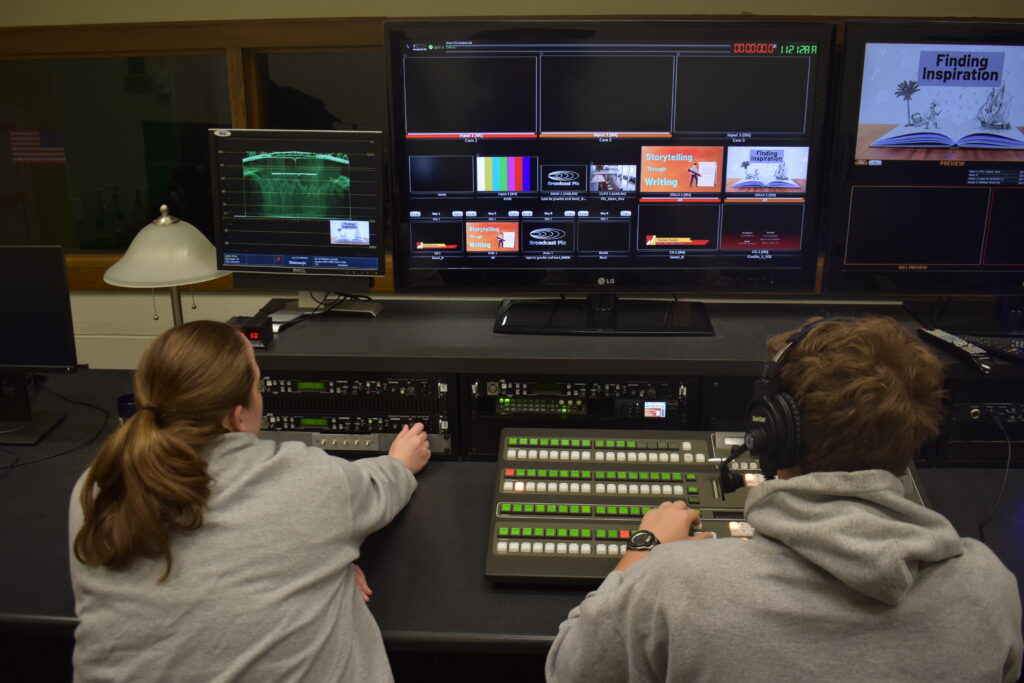Ferris Television Engineer Bill Jung turned his master’s capstone project into a full fledged broadcasting minor, which is set to begin in the upcoming fall semester.
In this context, an engineer is the person who sets up the equipment for distributing television and radio broadcasts, and they maintain it and troubleshoot when things go wrong.
After identifying a need for broadcasting within the television industry, Jung developed a solution with School of Digital Media Director Glen Okonoski to create a minor in broadcast engineering.
Jung was first given the idea at a Michigan Association of Broadcasters event when a woman misunderstood his engineer title and mistook him for a professor of engineering. When Jung corrected her, she replied, “Well you should be. We are in desperate need of engineers.”

The MAB is an advocacy group for local television and radio studios. They represent around 3500 employees across the state and have identified a transition within broadcasting media. The traditional workforce is aging out and looking towards retirement. This creates greater demand for younger engineers to fill these newly opened roles. This demand is in turn requiring more education for high level jobs.
“We have identified a need for broadcast engineers in [Michigan],” MAB President and CEO Sam Klemet said. “We are looking to get a new pipeline of engineers, and we have been working with Ferris to bring those that are in the broadcast engineering industry to talk to students and provide sample curriculums.”
Broadcast engineers previously worked as electrical engineers and computer science engineers. Very few colleges and universities in the United States offer a degree in broadcast engineering, and only a handful offer a minor with this focus.
The Ferris broadcast engineering minor has been created out of already existing classes. These include television and digital media classes, computer science classes and more. The goal is to create a universally accessible, well rounded program with hands-on experience not found anywhere else in the country.
“Ferris has a very strong reputation,” Klemet said. “We have graduates in Michigan at our broadcast stations [and] all over the country as well in various rolls. Whether it’s production or on air… having a degree from there does carry a lot of weight.”
An additional goal is to increase enrollment in higher level technology classes and broaden their scope to outside their individual majors.
“I’m mad that Ferris didn’t offer this program when I first enrolled,” digital animation and game design junior Kieran Chichester said. “Esports needs broadcasters too, and I would have loved to use the minor as a way to become a part of these productions.”
Television and digital media production freshman Andres Hyde expressed interest in learning to be an engineer. He sees the broadcast engineering minor as an opportunity to delve deeper into the engineering side of digital media, which his traditional major track would not have offered.
“If you enjoy a variety in your work, have a natural curiosity and like looking at new things, this would be the ideal [minor] for you,” Jung said. “There is something different everyday, and everybody has a boss, but in a lot of ways you make your own schedule, your own agenda.”
Klemet believes that this program will set Ferris students up for successful and enjoyable careers.
“Broadcast engineers are critically important for safety reasons, security reasons and technical reasons, but it’s also a lot of fun,” Klemet said. “You do cool things and go to cool places, whether it’s sporting events, concerts or community events. It’s a fun job… that can have a very rewarding and lucrative life.”
With the minor set to launch in the fall, new engineers will be taught in the new Center for Visual Learning in the coming months.
